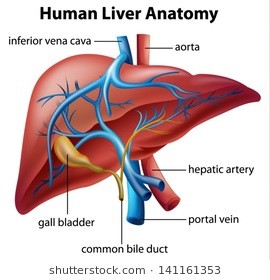- You are here:
- Home »
- Blog »
- non-conventional therapies »
- Liver Cancer- Burzynski Research Institute (BRI), Antineoplaston Therapy (ANP)
Liver Cancer- Burzynski Research Institute (BRI), Antineoplaston Therapy (ANP)
“These results suggested that antineoplaston A10 may inhibit the growth of human hepatoma cells through the induction of apoptosis”
Conventional oncology may have little to offer the liver cancer patient. Dr. Stanislaw Burzynski, his clinic and the therapy called antineoplaston therapy is…controversial …to say least. I can’t speak to issues such as the quality of his research and publishing. I am blogging about the BRI and ANP because I went to the clinic in 10/97 as a terminal multiple myeloma cancer patient, began the therapy on 11/3/97 and achieved cancer-free status by 4/99.
Liver cancer can be difficult to treat with conventional or standard-of-care therapies. Chemotherapy can be toxic to the liver. Antineoplaston therapy may offer therapy options.
My research and experience as a cancer survivor and cancer coach is that cancer patients must utilize the best of both conventional and evidence-based non-conventional therapies if they are to manage their life.
To learn more about liver/hepatocellular carcinoma, antineoplaston therapy or other non-conventional therapies please scroll down the page, post a question or a comment and I will reply ASAP.
thank you,
David Emerson
- Cancer Survivor
- Cancer Coach
- Director PeopleBeatingCancer
Recommended Reading:
- Brain cancer, The Burzynski Research Institute and Antineoplaston Therapy (ANP)an
- Pediatric Brain Cancer- Antineoplaston Therapy from the Burzynski Research Institute
- Brain Cancer-Malignant Glioma- The Burzynski Research Institute
Antineoplaston treatment for advanced hepatocellular carcinoma.
“Antineoplaston A10 injection (antineoplaston A10 I) exhibited cystostatic growth inhibition of human hepatocellular carcinoma (HCC) cells in vitro and showed minimum adverse effects in a phase I clinical trial. Advanced HCC is hard to control because the potent anticancer drugs or embolizations easily induce hepatic failure…”
Inhibitory effect of antineoplaston A10 and AS2-1 on human hepatocellular carcinoma.
“The reported cytostatic inhibitory effect of A10 on human hepatocellular carcinoma cells and differentiation inducing effect of AS2-1 on various tumor cells suggest potential benefit for the treatment of human hepatocellular carcinoma since this tumor recurs frequently despite initial successful treatment. We report here the effects of Antineoplaston A10 and AS2-1 on cell proliferation, cell morphology, cell cycle, and DNA in human hepatocellular carcinoma cell lines…”
Induction of apoptosis in human hepatocellular carcinoma cells by synthetic antineoplaston A10.
“…In addition, the level of expression of apoptotic marker p53 increased while that of anti-apoptotic protein bcl-2 decreased, as evaluated with immunohistochemical staining in the xenografts. These results suggested that antineoplaston A10 may inhibit the growth of human hepatoma cells through the induction of apoptosis.”


